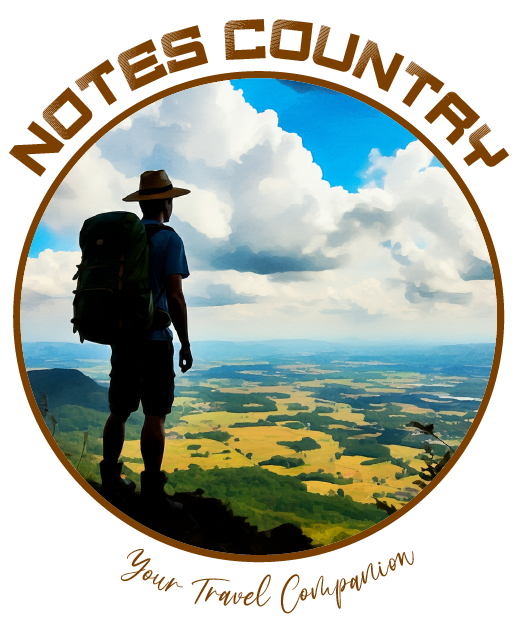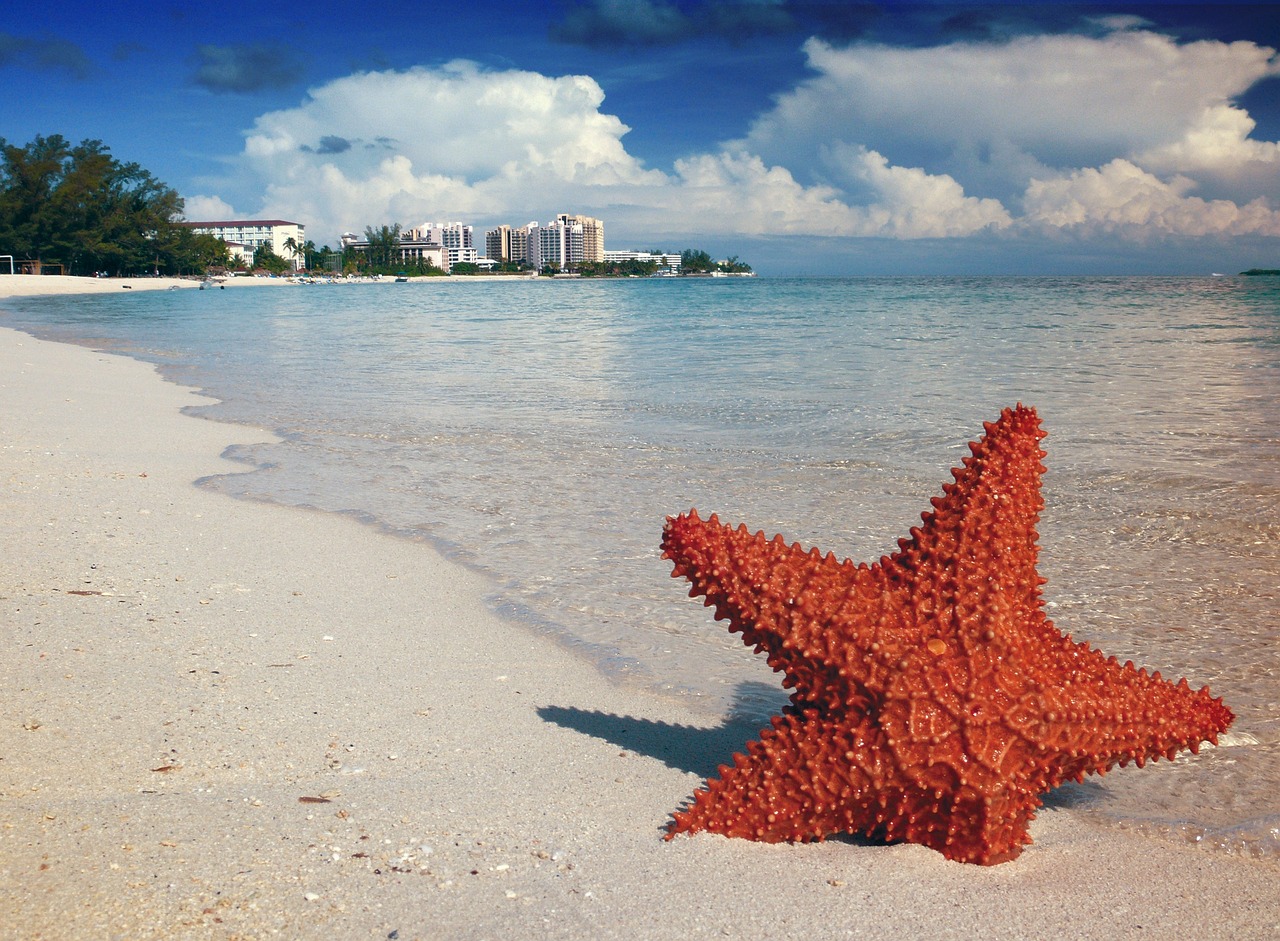The Bahamas, an archipelago of 700 islands and over 2,000 cays, is a tropical paradise that beckons travelers with its crystal-clear turquoise waters, powder-soft sand beaches, and vibrant culture. This Caribbean nation offers a perfect blend of relaxation and adventure, from world-class resorts to secluded eco-retreats. Whether you’re seeking to unwind on pristine beaches, explore underwater wonders, or immerse yourself in rich island traditions, The Bahamas promises an unforgettable escape for every type of traveler.
Must-see attractions
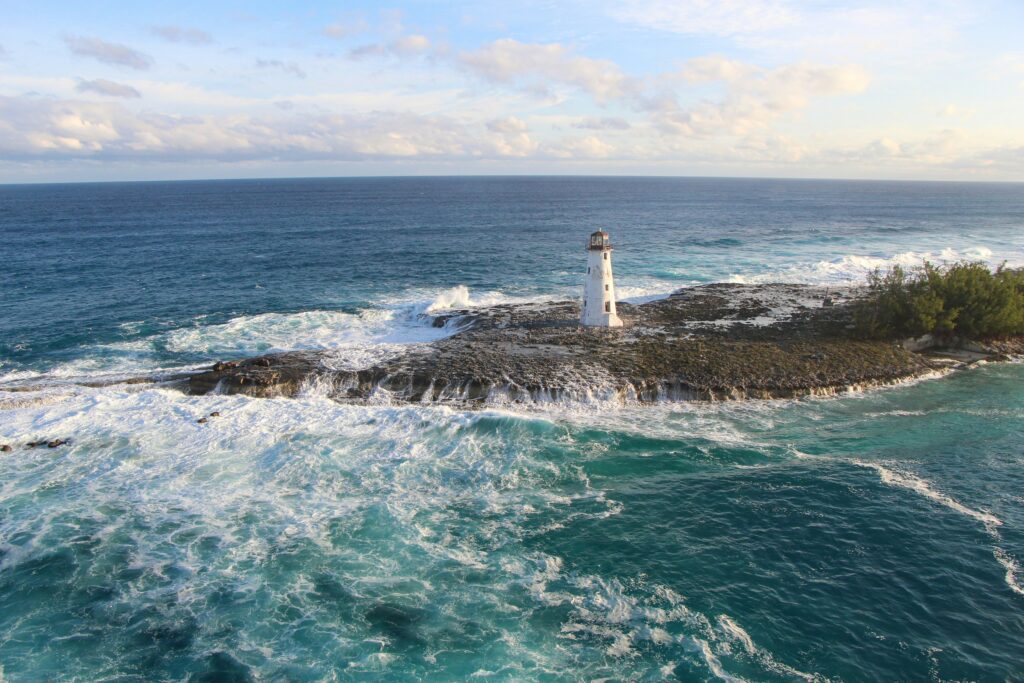
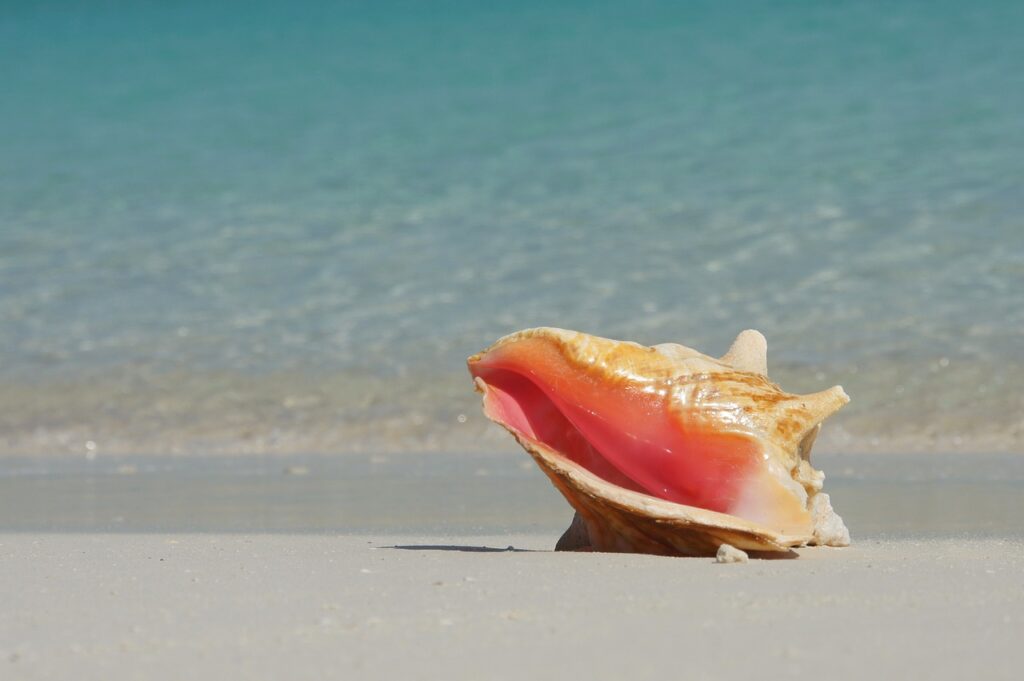
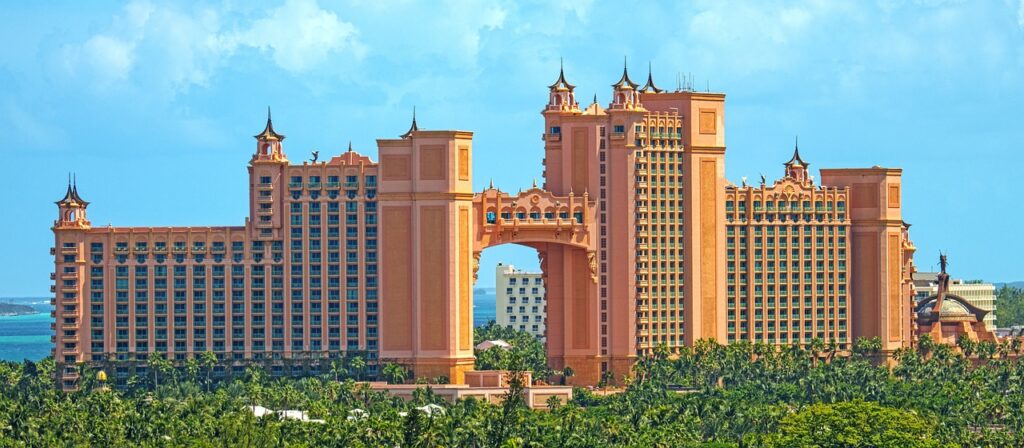
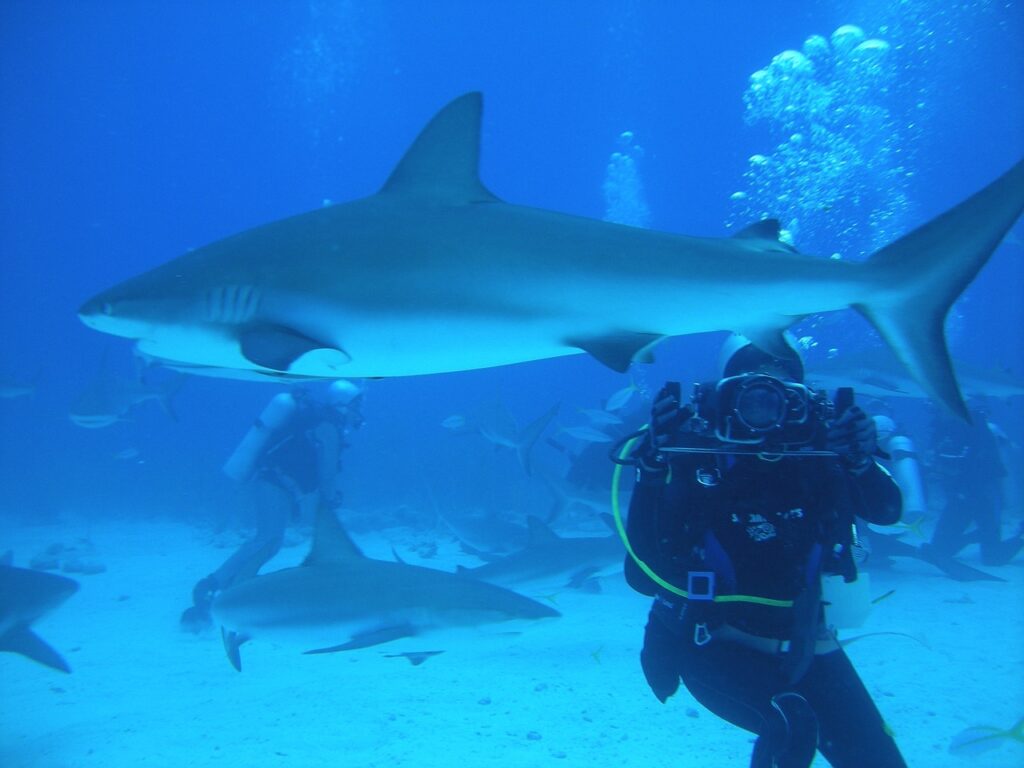
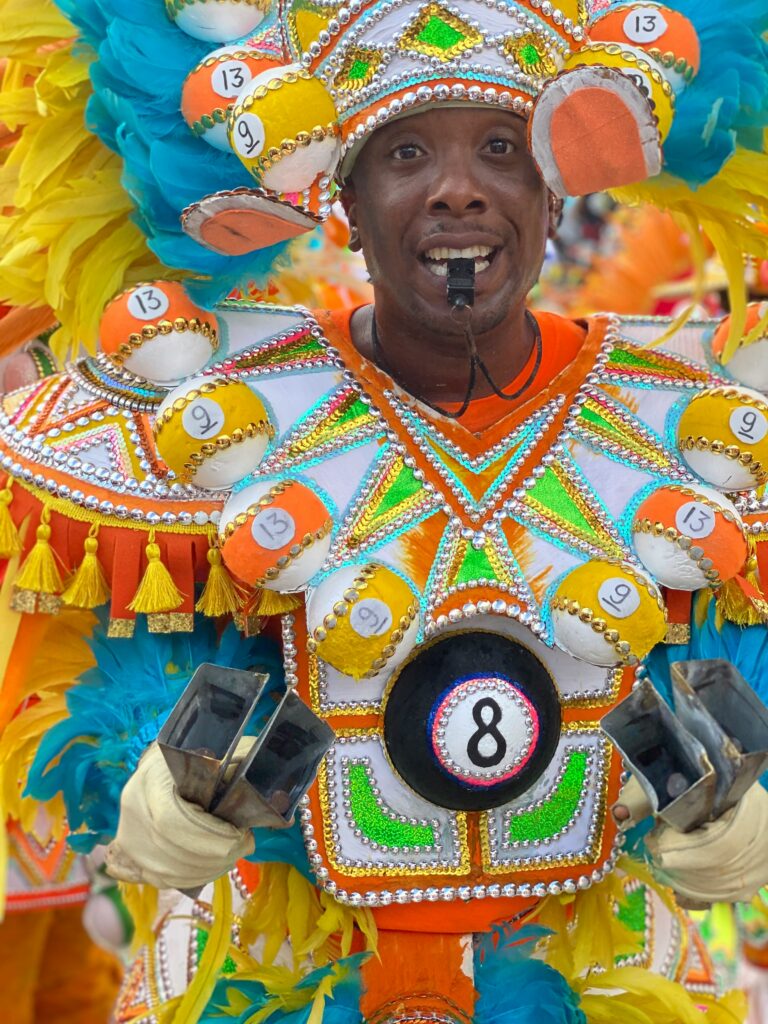
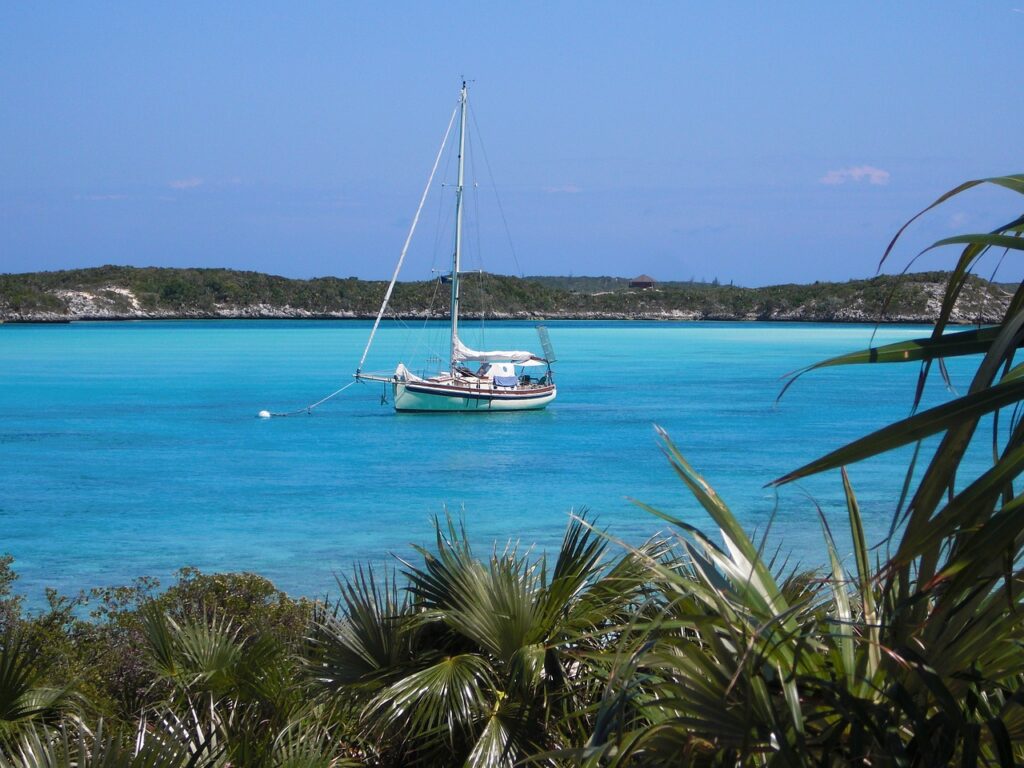
- Exuma Cays: Swim with friendly pigs at Big Major Cay, a unique Bahamian experience.
- Dean’s Blue Hole: Dive or snorkel in one of the world’s deepest known salt water blue holes.
- Lucayan National Park: Explore underwater cave systems and pristine beaches on Grand Bahama Island.
- Atlantis Paradise Island: Visit this mega-resort for its water park, marine habitat, and casino.
- Pink Sands Beach: Stroll along the famous pink sand beaches of Harbour Island.
- Thunderball Grotto: Snorkel or dive in this underwater cave system, featured in James Bond films.
- Nassau Straw Market: Immerse yourself in local culture and shop for handmade Bahamian crafts.
Popular islands and regions
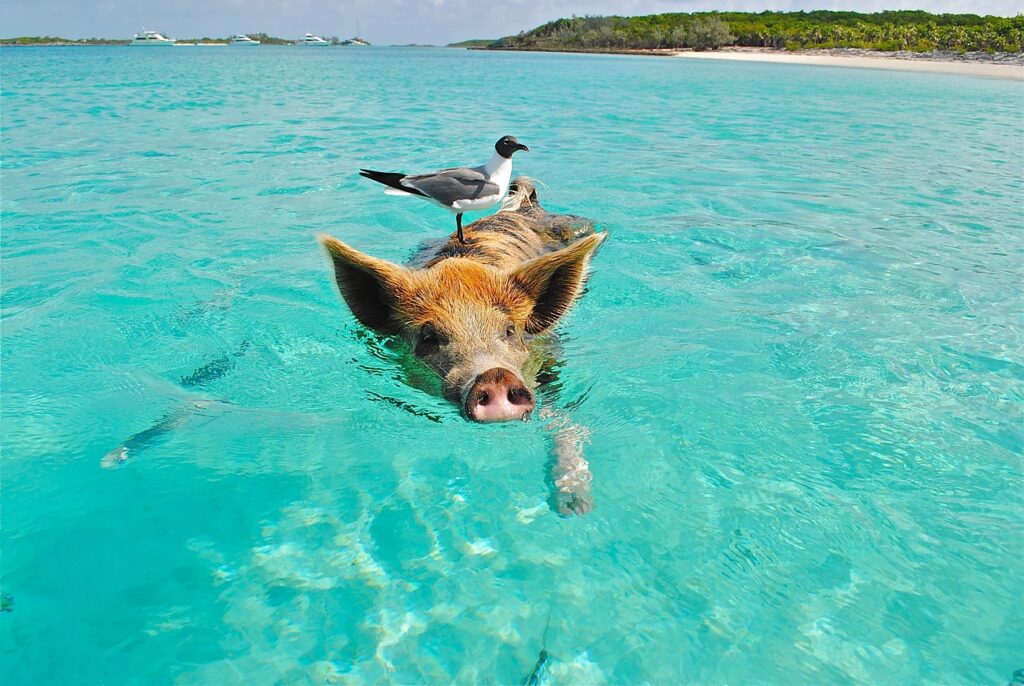
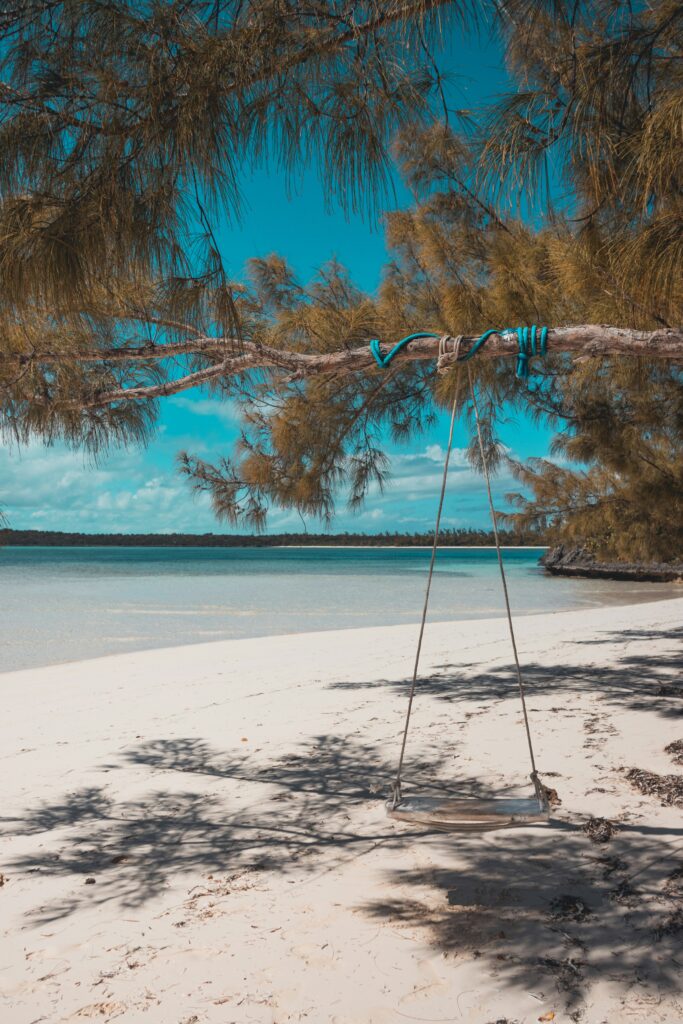
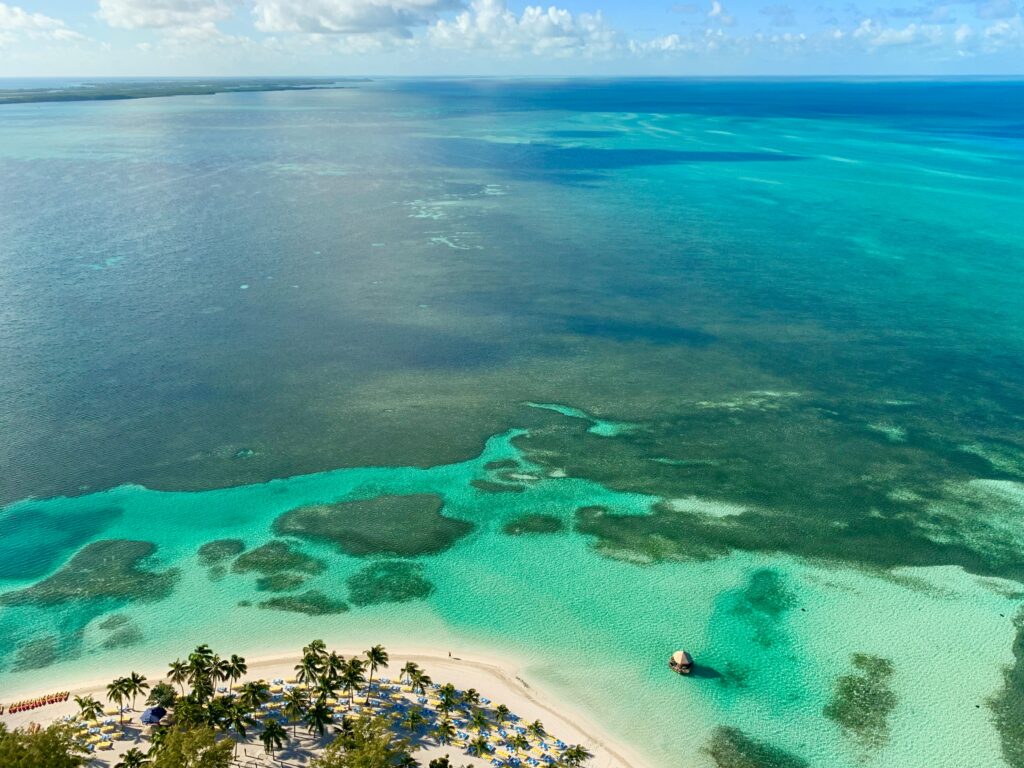
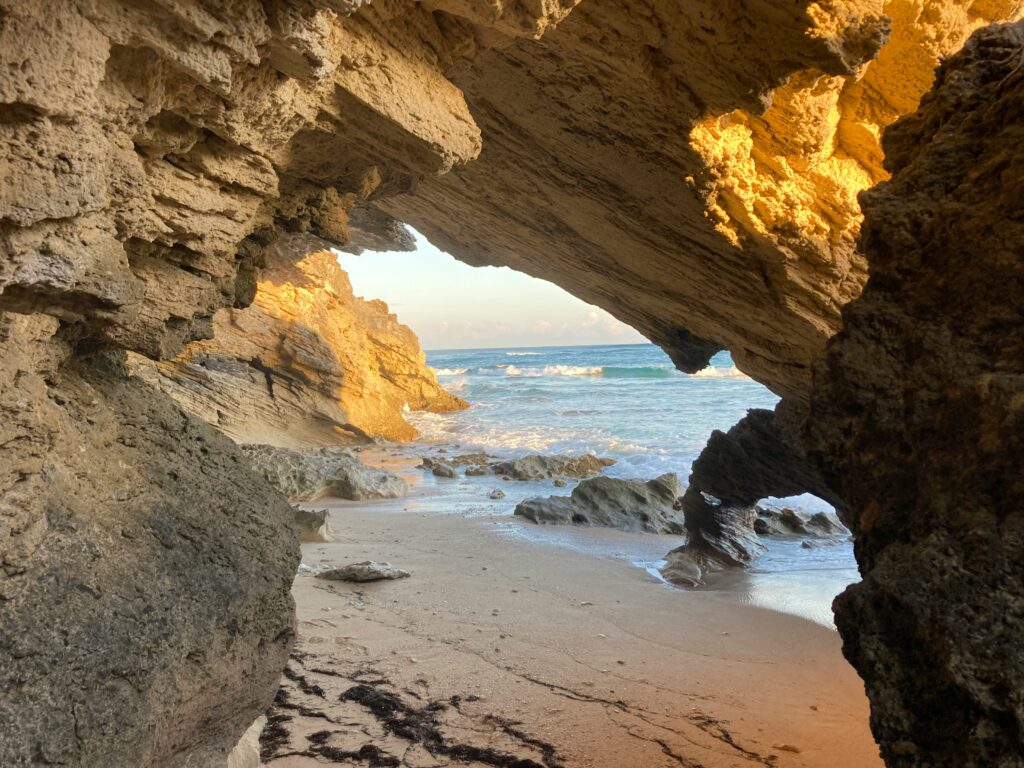
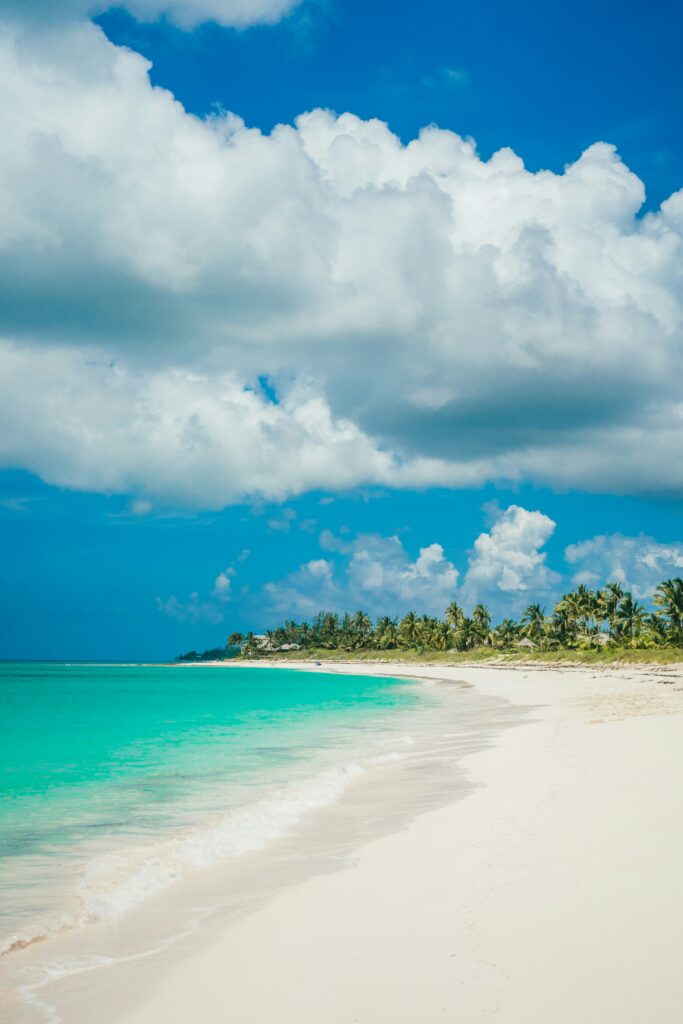
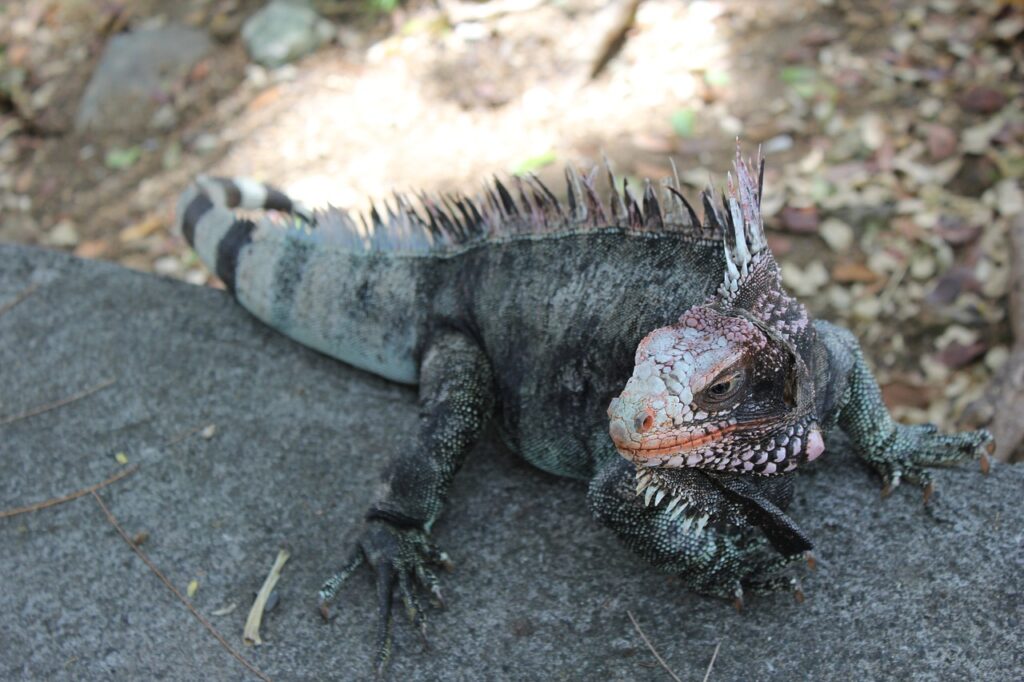
- New Providence Island: Home to Nassau, the capital city, and Paradise Island, offering a mix of history, culture, and modern attractions.
- Grand Bahama Island: Known for its all-inclusive resorts, nightlife, and the charming Port Lucaya Marketplace.
- The Exumas: A chain of 365 islands famous for pristine beaches, luxury resorts, and swimming pigs.
- Eleuthera and Harbour Island: Boasting picturesque pink sand beaches and a more laid-back atmosphere.
- Andros: The largest Bahamian island, perfect for eco-adventures and world-class bonefishing.
- Bimini: The closest Bahamian island to the United States, known for its proximity to the Bermuda Triangle and Ernest Hemingway’s former stomping grounds.
- The Abacos: A 120-mile-long chain of islands ideal for sailing, fishing, and diving.
Suggested itineraries
Classic Bahamas (1 week):
- Nassau, New Providence Island (4 days):
- Explore historic downtown Nassau
- Visit Atlantis Paradise Island
- Relax on Cable Beach
- Day trip to Blue Lagoon Island
- Harbour Island (3 days):
- Unwind on Pink Sands Beach
- Explore Dunmore Town
- Snorkel at Devil’s Backbone reef
Island-Hopping Adventure (10 days):
- Nassau (2 days): Acclimate and explore the capital
- Exumas (4 days):
- Swim with pigs at Big Major Cay
- Visit Thunderball Grotto
- Explore Staniel Cay
- Eleuthera (4 days):
- Relax on secluded beaches
- Visit Glass Window Bridge
- Explore Preacher’s Cave
Eco-Explorer (2 weeks):
- Grand Bahama Island (5 days):
- Kayak through mangroves in Lucayan National ParkDive at UNEXSO (Underwater Explorers Society)
- Bird watching at Rand Nature Centre
- Andros (5 days):
- Dive or snorkel the Andros Barrier Reef
- Explore blue holes
- Bonefish in the flats
- Inagua (4 days):
- Visit Inagua National Park
- Flamingo watching at Lake Rosa
- Explore abandoned salt pans
Sailing the Abacos (1 week):
- Start in Marsh Harbour
- Island hop through the Abacos chain, visiting:
- Hope Town and its candy-striped lighthouse
- Green Turtle Cay
- Great Guana Cay
- Man-O-War Cay
- Enjoy sailing, snorkeling, and beach-hopping along the way
Remember, The Bahamas offers diverse experiences across its many islands. These itineraries provide a starting point, but feel free to customize based on your interests, whether it’s lounging on beaches, diving coral reefs, or exploring local culture. Each island has its own unique charm, waiting to be discovered on your Bahamian adventure!
Travel Documents
- Passport: A valid passport is required to enter the Bahamas. Make sure it is valid for at least six months beyond your planned departure date.
- Visa: Citizens of the U.S., Canada, the U.K., and many EU countries do not need a visa for stays up to 90 days. Always check the official Bahamian immigration website to confirm the most recent visa policies for your country of residence.
- Travel Insurance: Although not mandatory, travel insurance is highly recommended. Ensure your insurance covers health emergencies, lost luggage, and trip cancellations, especially if you’re planning to engage in activities like water sports.
Entry Requirements
- COVID-19: As of now, the Bahamas has eased most of its COVID-19 restrictions, but it’s best to check the latest travel advisories or official Bahamian health websites before your trip to ensure you’re up to date on entry rules, vaccination requirements, or testing protocols.
- Customs Regulations: The Bahamas has strict customs regulations. You’re allowed to bring personal effects and a limited amount of duty-free goods like alcohol and tobacco. Fresh fruits, vegetables, plants, and animals are restricted, so review the prohibited items list before arriving.
Health Conditions
- Vaccinations: No special vaccinations are required to enter the Bahamas. However, make sure your routine vaccinations (like tetanus, measles, and hepatitis A and B) are up to date.
- Mosquito Protection: The Bahamas is a tropical country, and while malaria is not a concern, dengue and chikungunya can be transmitted by mosquitoes. Bring insect repellent, wear long sleeves when outdoors, and stay in accommodations with screened windows or air conditioning.
- Medical Services: Healthcare in the Bahamas is of good quality in major cities like Nassau and Freeport, but more remote islands may have limited facilities. Carry any necessary medications and ensure your travel insurance covers medical evacuations if needed.
Currency and Payment Methods
- Local Currency: The Bahamian Dollar (BSD) is the official currency, but it is pegged 1:1 with the U.S. Dollar (USD), and both currencies are widely accepted across the islands. It’s advisable to carry some cash for small purchases in local markets or for tipping.
- Credit and Debit Cards: Most hotels, restaurants, and tourist spots accept major credit cards (Visa, Mastercard, American Express). However, in remote areas or local markets, cash might be preferred.
- ATMs: ATMs are available in larger towns like Nassau, Freeport, and major tourist areas, though some smaller islands may have limited access to banking services.
Language and Culture
- Language: The official language is English, making communication easy for most visitors. You’ll also hear local Bahamian dialects in more rural areas.
- Cultural Etiquette: Bahamians are warm, welcoming, and value politeness. A simple “Good morning” or “Good afternoon” when greeting people is appreciated. Dress modestly when not at the beach, particularly when visiting churches or government offices.
- Festivals: The Bahamas is known for its lively cultural festivals, such as Junkanoo, which takes place around Christmas and New Year’s, featuring vibrant costumes, music, and dancing. If you’re visiting during this time, make sure to enjoy the celebration.
Safety
- General Safety: The Bahamas is a safe destination for tourists, but like any country, it’s important to stay aware of your surroundings, particularly in crowded tourist areas or secluded beaches. Use hotel safes to store your valuables.
- Natural Hazards: Hurricanes are a concern during the Atlantic hurricane season, which runs from June to November. Be sure to check weather updates before and during your trip if you’re traveling during this time.
- Wildlife: If you’re snorkeling or diving, be mindful of marine life like jellyfish or coral, which can cause stings. Always follow the guidance of local guides or posted warnings.
Weather and Clothing
- Tropical Climate: The Bahamas enjoys a tropical climate with warm temperatures year-round. The dry season runs from November to April, making it the best time to visit. However, the rainy season (May to October) can still be a good time to visit, as rains are usually brief and scattered.
- What to Pack: Light, breathable clothing is essential. Don’t forget swimwear, a hat, sunscreen (reef-safe options are better for the environment), and sunglasses. Evenings can sometimes be cooler, especially during the winter months, so pack a light jacket or sweater.
- Sun Protection: The Bahamian sun can be intense, so be sure to wear sunscreen with a high SPF, especially when spending long periods outdoors or on the beach.
Transportation
- Flights: The Bahamas is serviced by major airlines through Lynden Pindling International Airport (Nassau) and Grand Bahama International Airport (Freeport). For inter-island travel, smaller planes or ferries are available.
- Ferries and Boats: If you’re island-hopping, ferries like Bahamas Ferries or private boat charters are commonly used to travel between the islands.
- Car Rentals: Car rentals are available on the larger islands, though driving is on the left side of the road. Roads can be narrow or poorly lit, so drive cautiously, especially in rural areas.
- Taxis: Taxis are plentiful in Nassau and Freeport, and fares are often negotiable, so it’s good to agree on a rate before starting your journey.
- Bicycles and Scooters: On smaller islands, renting bicycles or scooters is a popular way to explore. Be sure to wear a helmet and carry water for long rides.
Accommodation
- Hotels and Resorts: The Bahamas is famous for its luxury resorts, especially on Paradise Island and Exuma. All-inclusive resorts offer convenience with everything from food to activities included. However, these can be pricey.
- Boutique Hotels: For a more personal experience, consider staying at smaller boutique hotels, often run by locals, especially on the outer islands. They offer a more authentic Bahamian experience.
- Vacation Rentals: Many visitors opt for private vacation rentals through platforms like Airbnb, especially if you’re traveling with family or a group.
Internet and Telephony
- SIM Cards: If you need local mobile services, purchase a SIM card upon arrival. Major providers include BTC and Aliv, which offer prepaid options for tourists.
- Wi-Fi: Most hotels, resorts, and cafes offer free Wi-Fi, though speeds can vary. Remote islands may have limited or slow internet access, so plan accordingly.
- Electricity: The Bahamas uses 120V and Type A/B plugs (same as in the U.S.). If you’re coming from outside North America, bring an adapter.
Working Hours and Public Holidays
- Business Hours: Most businesses, shops, and government offices operate from 9:00 a.m. to 5:00 p.m., Monday to Friday. Shops in tourist areas may stay open later, especially during high season.
- Public Holidays: Keep in mind that during public holidays, some businesses may be closed or have limited hours. Major holidays include:
- New Year’s Day (January 1)
- Good Friday (Friday before Easter)
- Independence Day (July 10)
- Boxing Day (December 26)
- Junkanoo: Junkanoo festivals happen on Boxing Day and New Year’s Day, and this can be a lively time to visit Nassau or Freeport.
Tipping
- Tipping is customary in the Bahamas, similar to the U.S. In restaurants, a 15-20% tip is expected. Some restaurants may add a service charge to the bill, so check before tipping extra. It’s also polite to tip hotel staff, porters, and taxi drivers. For hotel services, tipping USD 1-2 per bag for bellhops and USD 3-5 per night for housekeeping is standard.
Final Tip:
The Bahamas offers a balance between luxury and natural beauty. Whether you’re indulging in a resort on Paradise Island, snorkeling with sea life in the Exumas, or soaking up Bahamian culture at Junkanoo, you’ll find a diverse range of activities and a laid-back island vibe that will make your trip unforgettable.
